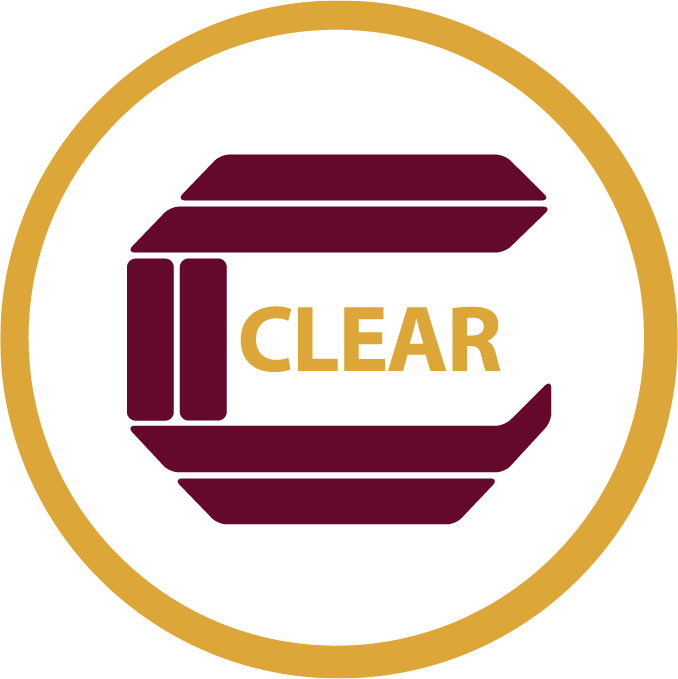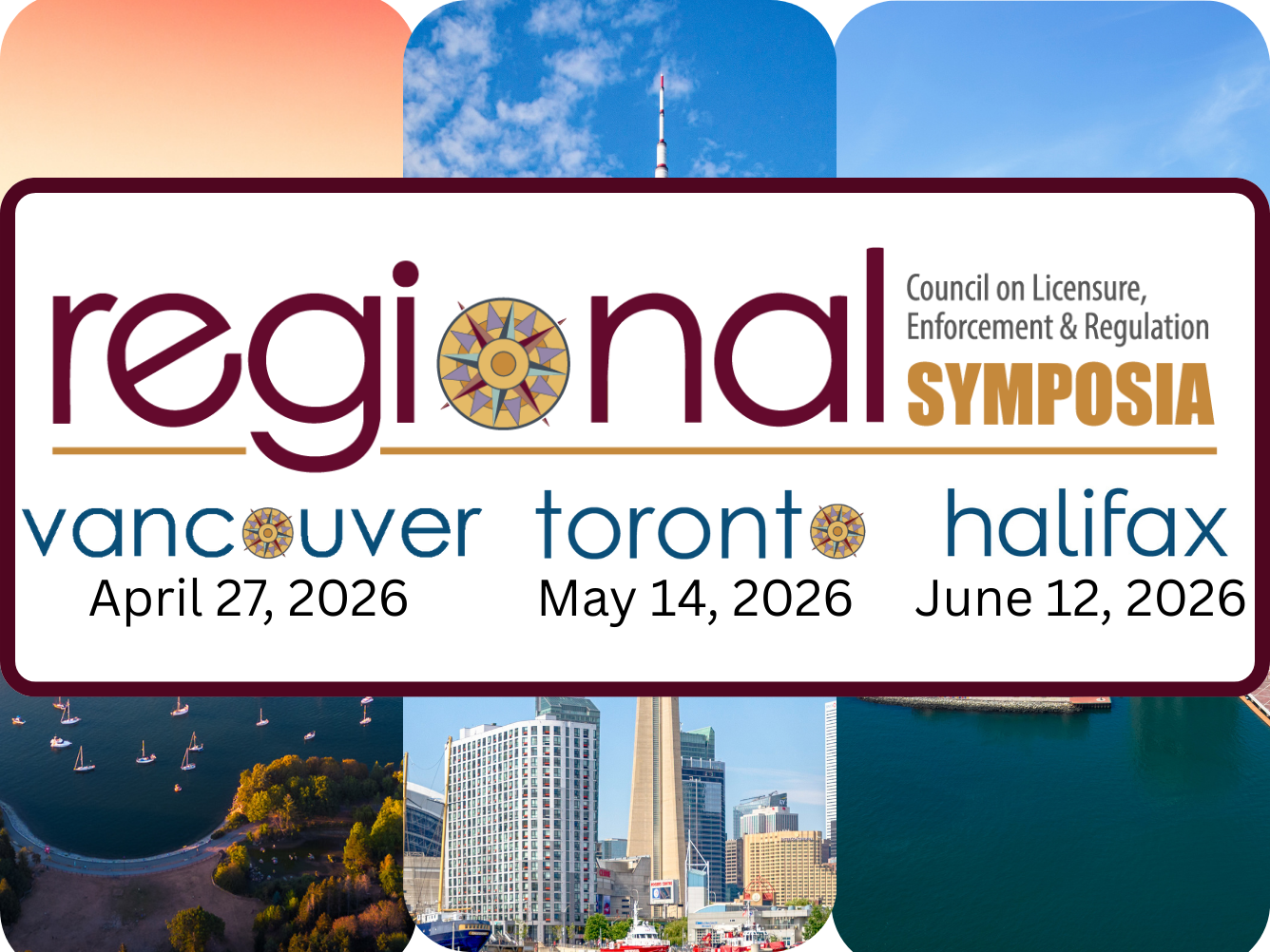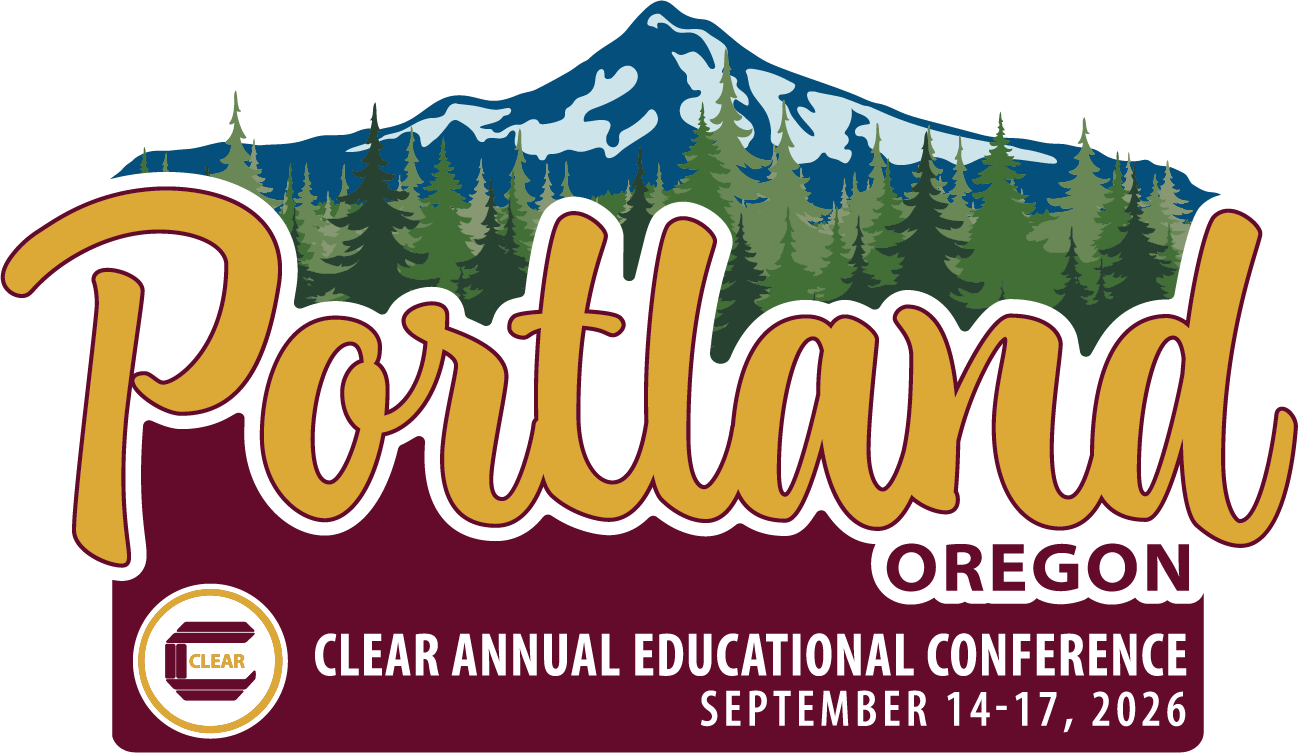Committees & Working Groups
CLEAR's committees are engaged in important projects and tasks across the organization. Whatever your area of interest or expertise, CLEAR welcomes your involvement. Committees are appointed following the conclusion of each Annual Educational Conference and serve for one year, but members may volunteer and join at any time. CLEAR’s committees meet twice each year, at the midyear business meeting in January and at the Annual Educational Conference. Many committees also have periodic virtual meetings to monitor and advance their activities throughout the year.
Additional information regarding each committee’s initiatives, projects, and responsibilities is available by clicking on the committee names below. Submit the committee participation form to volunteer for committee service (must be a current CLEAR member or create a CLEAR member account).
Committee rosters, meeting agendas, and supporting materials will be available in the committee portal, OnBoard. For questions about accessing OnBoard, please contact sthompson@clearhq.org.
Feedback from CLEAR’s Membership Experience Working Group highlighted that members are also interested in more short-term volunteer opportunities in addition to committee service. CLEAR has opportunities to help shape CLEAR programming and resources through working groups or shorter-term projects. Additional information regarding each working group is available by clicking on the working group names below. Submit the working group participation form to volunteer.
Working Group Participation Form
Expand an accordion to read about that committee or working group.
The Diversity, Equity, and Inclusion Committee shall promote diversity, equity, and inclusion in the professional and occupational regulatory community by:
1) Defining diversity, equity, and inclusion terminology for CLEAR and its membership
2) Supporting CLEAR stakeholders as they seek to remove bias and discrimination in the professional and occupational regulatory community
3) Providing advice and recommendations to the CLEAR Board of Directors committees, and staff with respect to raising awareness of diversity, equity, and inclusion in the regulatory community
4) Assisting in the development of diversity, equity and inclusion topics and related items of discussion for CLEAR’s educational programs, including, but not limited to, conferences and professional development offerings
5) Assisting in helping CLEAR to build leadership opportunities for stakeholders including opportunities that foster greater diversity, equity, and inclusion.
The Examination Resources and Advisory Committee members share examination expertise with other committees and members, develop and publish guidelines and promote development of standards, policies and procedures. Committee members make recommendations to CLEAR’s board of directors and general membership related to best practices in examination and assessments. Current projects include suggesting webinar topics, considering updates to CLEAR Exam Review and an update of the glossary of testing terminology. The committee invites members with an interest in the field of examinations, testing and assessment to join. Additional skills and expertise needed include an understanding of examination trends, experience in examination development and partnership with regulatory organizations.
The Regulatory Agency Administration Committee members share best practices, identify current challenges and solutions and provide resources and strategies for administrators across the regulatory community. The committee is tasked with identifying the trends and issues of interest to the regulatory community for CLEAR program, resource and content development. Current projects include CLEAR Information Sharing Webinars, gathering resources for the Regulators Toolkit and identifying results-based research for the regulatory community. The committee invites members with experience in the administrative functions of regulatory authorities to join. Additional skills and expertise needed include innovations in administrative processes, technology support for administrative organizations and organizational leadership.
The Annual Educational Conference Program Committee members coordinate, develop and present the Annual Educational Conference program. The subcommittees, listed below, determine the sessions and topics to include in each program track. Committee members have the opportunity to shape the Annual Educational Conference program to offer the most relevant, essential and valuable regulatory information available. Members also review vendor-led webinar proposals throughout the year. All members of CLEAR are encouraged to join one of the subcommittees. Insight and experience in any of the four areas is helpful to ensure CLEAR program content meets the diverse needs of the regulatory community.
Subcommittees
- Entry to Practice Standards and Continuing Competence
- Testing & Examinations
- Regulatory Administration and Governance
- Compliance, Discipline, and Enforcement
This subcommittee reviews session proposals and develops the Annual Educational Conference content. The Entry to Practice Standards and Continuing Competence Subcommittee is responsible for evaluating and developing sessions that allow those involved in the initial licensing/registration/credentialing process to discuss the issues, trends, and challenges they face in playing the "gatekeeper" role that is fundamental to professional regulation, outside of the testing and examination realm. Topics may include defining competencies within a scope of practice, setting standards of qualification (education, training, experience), establishing equivalencies, assessing practical experience, accrediting education providers, artificial barriers to practice, labor mobility (national and international), appeals processes when registration is denied, when should the bar be raised or lowered, re-entry to practice scenarios, etc.


